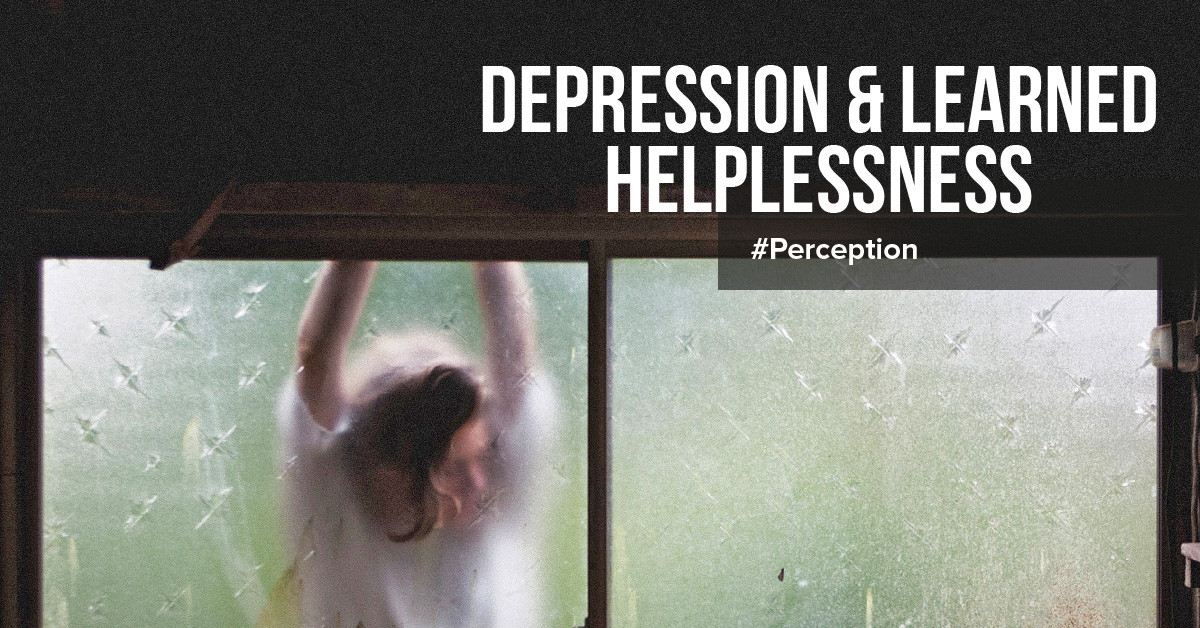What causes learned helplessness and can you get depressed by it?
The causes of learned helplessness were discovered during cruel research done by Maier and Seligman.
In the fifties, a terrible experiment was done with dogs to find out more about stress. The not even graduated Maier and Seligman built two cages with glass walls and a steel floor with in the middle and small fence where the dog could jump over. From the cage, the dogs could see each other, and while they were playing and barking to get out of the cage, the 'researchers' electrified both cages.
The setup was made in such a way that when in one cage, the dog jumped over the fence, the electric shock in both cages stopped immediately. But if the dog in the other cage did this, nothing happened. It all depended on one dog how long the torture would last, but fortunately, most dogs in the first cage learned quickly.
The dog who could jump from one side to the other as if his life depended on it without making any difference quickly noticed this and became apathetic within a short time. He remained motionless on the ground and let the electric shocks just come over him without trying to do anything about it. The dog that could stop the suffering had no problem with this. Maier and Seligman called this apathetic behavior learned helplessness.

Depression and learned helplessness
After the experiment, the apathetic dog was placed in a new environment. But time after time, the dog continued to behave apathetically. Even in situations where the dog was in control, he usually remained to lie motionless. Even in cases where the roles in the cage were reversed, the lovely creature refused to do anything to stop the torture. Because of his apathetic behavior, he suffered more than necessary.
Today we know that unpleasant experiences can also lead to apathy and depression in people. The younger and the more often a person comes into contact with unpleasant experiences, the higher the risk of depression. It is especially the case if the person - just like the second dog - has no influence on the unpleasant experiences.
Not everyone seems susceptible to depression or learned helplessness
It turned out during the investigation that not all dogs became apathetic. The researchers could not explain this at the time. With today's knowledge of how people deal with stress and how susceptible they are to depression, we know that all this has to do with what we believe is happening to us.
It turns out that people who seek the cause of suffering, bad luck, or stress in themselves are more likely to become depressed or apathetic than people who believe that it was just bad luck. People who do not look for the cause in themselves and who see stress, bad luck, or suffering as isolated incidents were much less affected by the situation and therefore had a reduced risk of depression.
Depression therapy and learned helplessness
Thanks to modern science, and because we know that most forms of depression are related to how you perceive events in your life, depression can be cured through therapy. In recent years, specialist coaches and therapists have developed therapies that can cure depression without the help of medication.
Why cause animal suffering?
Maier and Seligman's excuse for conducting these kinds of experiments was to test antidepressants. Even though the experiment has contributed to the knowledge of this drug, it is, of course, not right to talk about what they have done. Animal suffering is never justifiable. Nevertheless, Maier still appears to be experimenting with animals to this day. He publishes little or nothing about this in public.
-
Mursal AhmadiPsychologist / CoachUS$ 1,46 pm
-
Michelle MéndezHelping othersUS$ 0,17 pm
-
Monisha DoleyLife coach, authorUS$ 0,80 pm
-
Nilufar ArmakiPsychotherapistUS$ 1,17 pm
-
Maria ZilbermanMedical student, Y4US$ 1,00 pm
-
Allison HamptonTeacherUS$ 0,17 pm


































